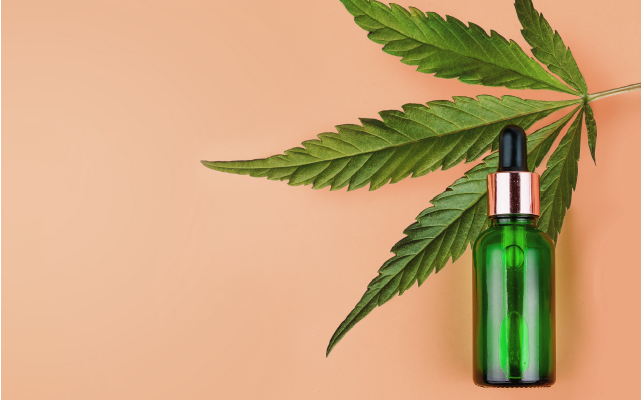CBD is the second most often used cannabinoid. It has a variety of therapeutic and medical applications without intoxicating the user. CBD contains anti-inflammatory, analgesic, anti-seizure, and anti-stress qualities, according to various medical researchers. CBD can be obtained from both hemp and marijuana, although restrictions vary by state in the United States. CBD derived from hemp is nearly legal in every state. For CBD legalization in Florida, CBD and its derivatives (containing less than 0.3 percent THC) are now legal in Florida. In Florida, laws governing CBD and its products are constantly changing. There was no formal legislation a few years ago, but with the passage of the 2018 Farm Bill, there is now a comprehensive legal framework.
Florida legislature passed the Compassionate Medical Cannabis Act in 2014. Under this regulation, specialized physicians were permitted to prescribe small quantities of medical marijuana to a limited number of patients—typically those suffering from severe pain and a life-threatening illness. In June 2017, Florida Governor Rick Scott approved a considerably larger state statute in response to voters’ desire to support the 2016 medicinal marijuana ballot. When specific requirements are met, registered practitioners in Florida can administer medicinal cannabis and CBD under the new law.
CBD Legalization in Florida
Is CBD legal in the state of Florida? Let’s go back a few years to learn more about CBD and its legal status in Florida. Historically, Florida has been a CBD-resistant state. The Federal Controlled Substances Act of 1970 made all hemp and its derivatives illegal.
The SB 1030 was passed in 2014, making CBD for therapeutic purposes legal. Every patient could not obtain CBD because it was not accessible as an over-the-counter product. CBD and its compounds were only available to registered patients. These Medicinal CBD items must have a THC content of less than 0.3 percent. Patients can utilize a higher CBD/THC ratio for health applications, according to some marijuana program changes issued in 2016. These changes prohibited smoking-able forms of cannabis. It signifies that smoking cannabis is not permitted.
More changes to the agricultural bill were implemented in 2019. Hemp is authorized under this bill, and CBD must contain just under 0.3 percent THC. Furthermore, all CBD products generated from hemp plants are legal, implying that hemp-derived products are no longer controlled substances.
Florida Hemp Farming and Regulations
Is CBD authorized in Florida? To find the solution, you must first understand Florida’s hemp farming rules. As you are all aware, CBD extracted from hemp does not contain a significant concentration of THC. Furthermore, because hemp-derived CBD does not cause intoxication, hemp production is permitted in Florida. To grow and cultivate hemp, you must first obtain a state license. A license is also required if you wish to run a testing facility for hemp derivatives and goods. If you received your CBD products from hemp, they must be evaluated by a licensed independent lab.
The US Food and Drug Administration is in charge of regulating CBD labeling and medical claims. A label must include:
- THC concentration ( less than 0.3 percent)
- The batch number of the product.
- The expiration date of the product
- The item clearance certificate is linked to a scannable QR barcode.
- The label must include information on the CBD product, whether it is full-spectrum or isolate.
- According to the Farm Bill, every state may regulate, even prohibit, CBD production and commercial applications based on the circumstances.
CBD Purchasing and Selling in Florida
Florida has no rigorous restrictions and regulations covering the sale of CBD and its compounds. CBD and related products are available everywhere, including retail stores, petrol stations, grocery stores, and restaurants. Numerous online sites sell CBD and related products. CBD products are being sold online by many well-known businesses. Keep the following points in mind before purchasing CBD or any of its components.
- What kind of CBD are you purchasing?
- What other elements are in CBD products besides CBD?
- The CBD product’s THC content
- Label verification and ingredient information
- Making and extracting data
- Date of expiry and batch number
By reviewing all of the items listed above, you may ensure that you are following the law. Furthermore, you can tell the seller what you’re seeking and which CBD product will be best for you. Any CBD product with a higher THC level is only available to medical patients. Moreover, there are no explicit CBD possession limitations.
CBD oil is readily available in Florida from any online marketplace or merchant. In this regard, Florida statutes and rules are permissive. Many states in the United States only allow CBD oil for patients, and it cannot be obtained without a prescription.
Many “non-dispensary” establishments in Florida sell hemp-based CBD oil. These stores will also deliver it to your door. As a result, unlike in other jurisdictions, there are no rigorous CBD oil restrictions.
Do you think you should look into CBD legalization in other states? More information on obtaining and using CBD can be found in our CBD FAQ, and you can easily construct your own CBD routine by visiting our CBD shop. Do you know how much you should take for each health problem? Our CBD dosage calculator application can help you figure out how much CBD oil to take.














